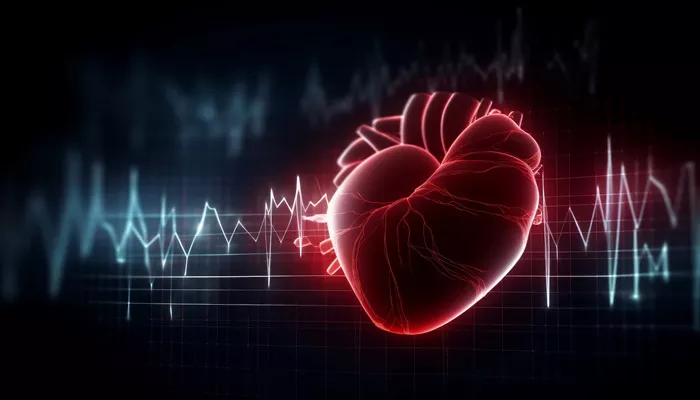Arrhythmia, commonly referred to as an irregular heartbeat, can significantly impact various organs within the human body. While the heart is the primary organ directly affected by arrhythmia, the consequences of this condition can extend to other vital systems. This comprehensive article will delve into the different types of arrhythmias, their causes, and how they affect various organs, including the heart, brain, kidneys, liver, and lungs.
Causes of Arrhythmias
Arrhythmias can result from various factors, including:
Electrolyte Imbalances: Abnormal levels of potassium, sodium, calcium, or magnesium.
Heart Disease: Coronary artery disease, heart attack, heart failure, and cardiomyopathy.
Genetics: Inherited conditions that affect the heart’s rhythm.
Medications: Certain drugs can cause or exacerbate arrhythmias.
Lifestyle Factors: Excessive caffeine, alcohol, smoking, and stress.
Which Human Organ Is Affected by Arrhythmia?
1. Impact on the Heart
The heart’s rhythm is crucial for maintaining effective blood circulation. When arrhythmia occurs, it can lead to:
Inefficient Blood Pumping: The heart may not pump blood effectively, leading to inadequate oxygen supply to the body.
Heart Failure: Chronic arrhythmias can weaken the heart muscle, causing heart failure.
Stroke: Atrial fibrillation increases the risk of blood clots, which can travel to the brain and cause a stroke.
Sudden Cardiac Arrest: Severe arrhythmias like ventricular fibrillation can lead to sudden cardiac arrest if not treated promptly.
SEE ALSO: How to Cure Arrhythmia Permanently
2. The Brain: Vulnerable to Inadequate Blood Supply
Cognitive Impairment
When arrhythmia affects the heart’s ability to pump blood efficiently, the brain may suffer from reduced blood flow. This can lead to cognitive impairment, including difficulties with memory, attention, and problem-solving.
Stroke
As mentioned earlier, atrial fibrillation significantly increases the risk of stroke. Blood clots formed in the atria can travel to the brain, causing ischemic strokes. Strokes can result in:
Paralysis: Loss of muscle function on one side of the body.
Speech Difficulties: Challenges in speaking or understanding speech.
Vision Problems: Partial or complete loss of vision in one or both eyes.
Severe Cognitive Decline: Permanent damage to brain function.
3. The Kidneys: Impaired Filtration and Function
Chronic Kidney Disease
The kidneys rely on a steady blood supply to filter waste and maintain electrolyte balance. Arrhythmias, particularly those leading to heart failure, can cause reduced blood flow to the kidneys. Over time, this can contribute to chronic kidney disease (CKD).
Acute Kidney Injury
Severe episodes of arrhythmia, such as ventricular fibrillation, can lead to acute kidney injury (AKI). AKI is a sudden loss of kidney function due to inadequate blood flow and oxygenation. Symptoms of AKI include decreased urine output, swelling, and confusion.
4. The Liver: At Risk of Congestion and Damage
Congestive Hepatopathy
Arrhythmias that cause heart failure can lead to a condition known as congestive hepatopathy. This occurs when the liver becomes congested with blood due to poor heart function. Symptoms include:
Jaundice: Yellowing of the skin and eyes.
Ascites: Accumulation of fluid in the abdomen.
Hepatomegaly: Enlargement of the liver.
Liver Cirrhosis
Prolonged liver congestion can result in liver cirrhosis, where healthy liver tissue is replaced with scar tissue. This impairs liver function, leading to complications such as portal hypertension, varices, and hepatic encephalopathy.
5. The Lungs: Compromised Oxygen Exchange
Pulmonary Edema
Heart failure caused by arrhythmias can lead to pulmonary edema, a condition where fluid accumulates in the lungs. This fluid buildup impairs gas exchange, causing symptoms like shortness of breath, wheezing, and a feeling of suffocation.
Pulmonary Hypertension
Chronic arrhythmias can also contribute to pulmonary hypertension, a condition characterized by increased blood pressure in the pulmonary arteries. This places additional strain on the right side of the heart and can lead to right-sided heart failure.
Holistic Management of Arrhythmias
Medical Interventions
Effective management of arrhythmias involves a combination of lifestyle modifications and medical interventions:
Medications: Antiarrhythmic drugs, beta-blockers, and anticoagulants can help control heart rhythm and reduce the risk of complications.
Pacemakers: Devices implanted to regulate heart rhythm, particularly in cases of bradycardia.
Implantable Cardioverter-Defibrillators (ICDs): Devices that monitor heart rhythm and deliver shocks to correct life-threatening arrhythmias.
Catheter Ablation: A procedure to destroy areas of heart tissue causing abnormal rhythms.
Lifestyle Changes
Patients with arrhythmias can benefit from lifestyle changes, including:
Healthy Diet: Consuming a heart-healthy diet rich in fruits, vegetables, whole grains, and lean proteins.
Regular Exercise: Engaging in moderate physical activity to improve cardiovascular health.
Stress Management: Practicing relaxation techniques such as yoga and meditation.
Avoiding Stimulants: Limiting caffeine and alcohol intake.
Conclusion
Arrhythmia primarily affects the heart but has far-reaching implications for other vital organs, including the brain, kidneys, liver, and lungs. Understanding the impact of arrhythmias on these organs underscores the importance of early diagnosis and comprehensive management to prevent severe complications. Through medical interventions and lifestyle modifications, individuals with arrhythmias can lead healthier, more fulfilling lives while minimizing the risks associated with this condition.


